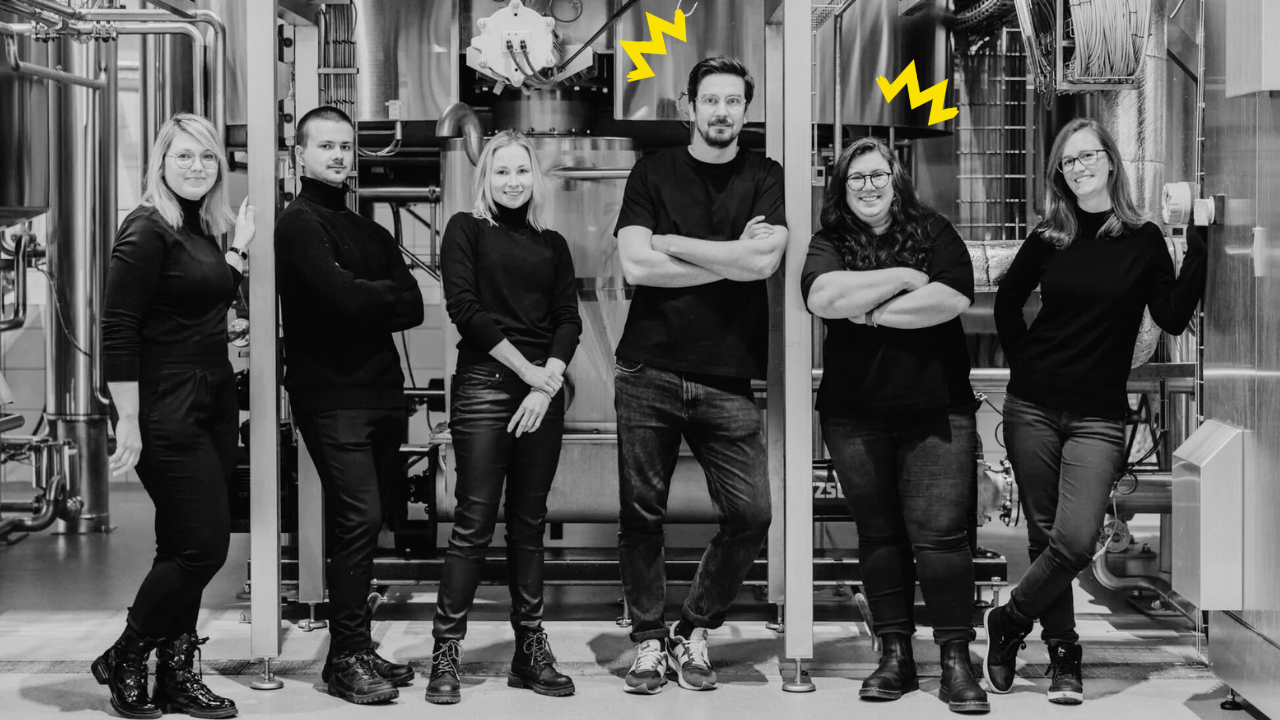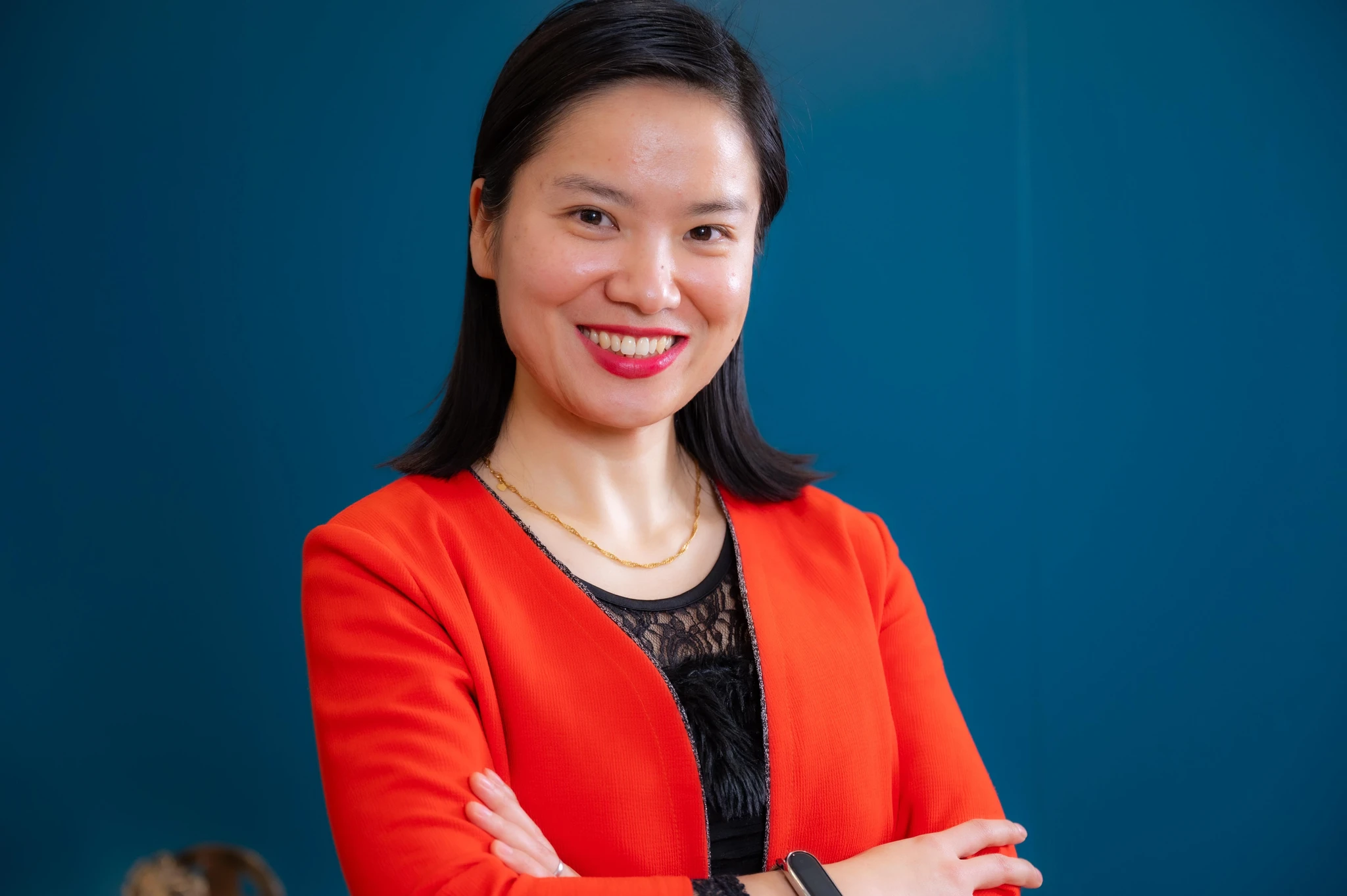
Petri-Jaan Lahtvee and Nemailla Bonturi from ÄIO on finding similarities between academia and entrepreneurship
ÄIO is an Estonian biotech company that is employing precision fermentation to valorize side-streams from agriculture, food industry and forestry into high-quality microbial oils and fats. The company recently raised 1M € from investors including Nordic Foodtech VC, Enterprise Estonia and other partners to scale up operations and bring their products to the market. We caught up with the founders Petri-Jaan Lahtvee, and Nemailla Bonturi at sTARTUp Day to chat about the current scale and challenges that lie ahead for the company and the scientists turned entrepreneurs.
This interview was written by Tejas Anil Shah, a team member of the sTARTUp Day communications & marketing team.
So Petri, to begin with how did you find yourself working with strains of bacteria, yeast and getting them to create food products for humans?
Petri: It was quite coincidental actually. I’ve liked the STEM fields since high school. Chemistry and Mathematics were my strong suits. Then at university there was a combined program for Chemistry and Biotechnology that I found quite interesting and enrolled myself in. That’s where I met Professor Raivo Vilu. He brought me into his lab and later became my mentor and supervisor. It was in his lab that I started working with strains of bacteria, and that’s what got me fascinated.
As for Nemailla, you’ve done all your education from Brazil, can you describe your journey to Estonia as a researcher?
Nemailla: Yes, I did all my education in Brazil, but in 2012-2013, I did an exchange year during my PhD. I lived in Sweden for one year, about 70 kilometres from the Arctic Circle. It was the first time I lived abroad and it also prepared me for the harsh weather. Then I went back to Brazil, finished my PhD and started working. But the political situation in Brazil changed for the worse with a far right government being elected to power. When this government came into power, they cut down research budgets, and I felt that I needed to look for other options.
I knew that I liked the European lifestyle and I was looking for positions in Europe. That's when I found Estonia and the research groups here. To be honest, I had to look up where it was on the map because although I was vaguely familiar with it I didn’t know much about the country apart from its connection to the old Soviet Union. Then I learnt more about Estonia, its quick progress and the digital revolution. Although Estonia would still be quite out of my comfort zone, the research topics here were very similar to the topics that I’d already worked on. So, I applied and got accepted for the position. It will soon be seven years since I moved here.
The products that your company is creating are the by-products of precision fermentation. Can you tell us more about what precision fermentation is?
Petri: Precision fermentation is when you design microbes to produce something very specific. At ÄIO, although we are working with precision fermentation projects, our base technology is not the fermentation process itself. Our core technology is one step deeper and is related to cell design.
So let's say a company requires specific fats, they can approach us and tell us the properties that they desire in the fats. For example, they could say that they want the fat to have a certain melting point, and a certain taste. Then we can leverage our cell design technology to design microbes capable of producing the fats that the company ordered. That is the capability that we want to build.
How do we know that the microbes produce something that is edible, and safe for human consumption?
Petri: Well, the process of certifying that a new product is safe for human consumption is quite long and especially strict in Europe. But the gist of it is that, you have to run a lot of different tests and prove that it is safe. This includes chemical analysis, microbiological analysis, and toxicity studies as well. Additionally, if the compounds produced are completely new then there might be a need to run animal studies as well.
ÄIO recently raised 1M € from multiple investors, can you tell us what kind of challenges are you planning to tackle with this capital?
Petri: We’re currently looking at three important aspects. The first, is the process of scaling up. Essentially, we now need to prove that what worked at the lab scale also works at the industrial scale. With regards to that, we have already run successful experiments at the 4000 litre scale and we’ve got encouraging results.
The second aspect we’re working on is building relationships with potential customers and clients. Since we are a B2B company, we’re on the lookout for companies which need alternative sources of fats. So when it comes to this, we’ve focused on the vegan market, as these companies really need alternatives to palm oil or coconut oil to make their products.
The third aspect and the part that we already spoke about a little earlier, is the safety and regulatory paperwork. In order for us to market our products, we need something that is called a Novel Food Permit. Getting this permit in the EU is fairly challenging, so we need to spend a fair amount of our resources clearing the regulatory checks. Of course, the other thing that is always happening in the background is R&D.
Nemailla: To add to that, we’re also focussing on doing a technical economic analysis. The best group that does technical economic analysis of this type of lipid production from alternative sources is in Brazil. It is also the group where I did my PhD. We’re currently building the models with them.
However from our rough calculations we know that when we reach full production scale, we will be competitive with coconut oil when it comes to the price point.
However, as Petri mentioned in order to market our products we need the Novel Food Permit, and this can take a long time. In the meanwhile, we are also looking at other verticals such as cosmetics, pet food to generate early revenues.
So apart from all the precision fermentation and cell design projects that you’re working on, are there any projects that are specifically interesting to you as scientists?
Petri: To be honest, all my projects are interesting and dear to me. To start working on a project we go through a fairly long process. We write up an application for grants and we get attached to the projects when we do that.
However, to answer your question, some of the things that we are doing in engineering biology are super cool. For instance, we are developing molecular tools to make organisms be capable of doing something different than what they usually do. Then we also have projects which are related to synthetic energy sources. Here the idea is that the organisms don’t use their own traditional energy sources but they are supplied energy externally or synthetically. These are the projects that are quite interesting to me right now.
How has the transition to the world of entrepreneurship and business been for you?
Nemailla: Well, it was a little terrifying and challenging at the beginning. However, as a scientist, you are always up for challenges. One of the things I like to think is that when you do your PhD, you learn how to learn. You don’t have to know everything from the beginning, and it is quite frankly impossible to do so. I think the same applies to business.
What is important is to be able to educate yourself, and find the information that you need and take challenges with the right attitude.
When it comes to this, I believe we had an excellent strategy of joining accelerators to ease the transition. We joined Beamline and Healthtech accelerators in Estonia. We learned a lot from those experiences. Now I can say that I’m quite comfortable in the role of an entrepreneur, and it is a pleasant change from the world of academia for me.
Your company is called ÄIO, is there a story behind this name?
Nemailla: Äio is the god of sleep and dreams in Estonian folklore. I’ve always been fascinated by folklore since I was a kid. In Brazil, we have several legends that come from the native population, and in fact there is also a Netflix show called Invisible City that is based on Brazilian folklore. So every time I go to a new country I like to find out more about it. With Estonia, it is particularly challenging because a lot of the folklore is hidden away in Estonian.
However, coming back to the name of our company, we found the name because of my interest in folklore. There are plenty of things that I love about the name: Äio. First, Äio is believed to give people sleep so that they can rest from the difficulties and worries of the day. It is also said that Äio takes the soul of a tired person for a walk along an exciting and varied dream landscape. I find that belief quite beautiful. Of course, since this part of folklore, it is being forgotten.
The second is that the name is made up of only vowels. That is something that is fairly uncommon as well. So that’s how we ended up on Äio as the name for our company.
Last August, you were one of the TOP 5 teams at sTARTUp Pitching 2022. What did you find most useful or memorable about the festival?
Petri: We were still a very new company at the time, so going to sTARTUp Day was quite valuable to us. We got a lot of encouragement and ideas on how to proceed further.
Nemailla: For me it was quite memorable to see ÄIO on the main stage and receiving prizes. There was also valuable feedback and learning throughout the whole experience.
Applications to sTARTUp Pitching 2024 will open later this year. Stay tuned by signing up to our newsletter!
Äio is also an alumnus of the Estonian Health Tech Accelerator. You can read more about the program here.

Shaping the Future with Technology: A Conversation with Dr. Christina Yan Zhang
